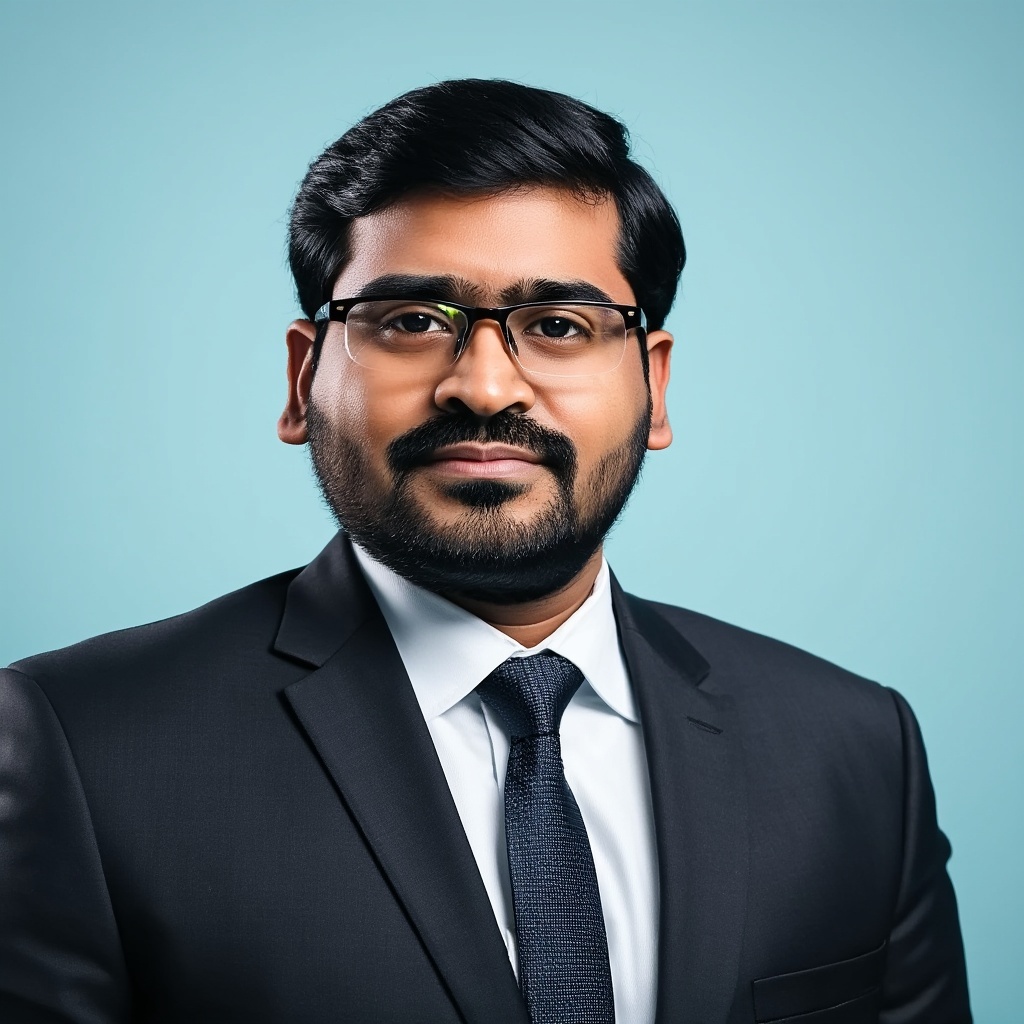AI expert Mahesh Recharla sits down for an exclusive conversation on the real challenges behind bringing AI into healthcare, without losing sight of ethics, equity, and human need. From personalized support for patients with neurological disorders to real-time drug pricing and automated pharmacovigilance, Mahesh explains how innovation should work for people, not just around them.
Mahesh dives into honest takes on bias in algorithms, the ethics of automation, and how cloud systems can actually simplify, not complicate lives. He is an expert in AI-driven healthcare and insurance innovation. He works with machine learning and neural networks to improve patient support and make healthcare more affordable. His research covers areas like predicting health risks, using AI in brain imaging, tracking drug safety, and improving how pharmaceutical services work.
Q1: Mahesh, thank you for joining us today. As a leading voice in AI-driven healthcare innovation, what first inspired your journey into this specialized intersection of artificial intelligence, ethics, and patient advocacy?
Mahesh Recharla: Thank you for having me—it’s a pleasure to be here. My journey into the intersection of AI, ethics, and patient advocacy began with a deep-rooted belief that technology should not only advance but also uplift those most in need. Early in my career, I saw how gaps in access, affordability, and understanding of healthcare could leave vulnerable patients behind. That realization drove me to explore how AI—especially in its most advanced forms like Machine Learning and Agentic AI—could be harnessed not just for innovation, but for equity and empathy. Ethics became an inseparable part of this mission, ensuring that technological progress respects human dignity, privacy, and fairness. My focus on patient advocacy stems from a commitment to create AI systems that are not only intelligent but also just and inclusive.
Q2: You emphasize the role of predictive models and real-time data integration in reducing patient financial burdens. How do you envision these technologies evolving to better support low-income or underserved populations within the next five years?
Mahesh Recharla: In the next five years, I envision predictive models and real-time data integration playing a transformative role in reshaping equitable healthcare access. These technologies will increasingly be designed with social determinants of health in mind, enabling systems to proactively identify individuals at financial risk and intervene earlier with personalized support. For low-income or underserved populations, this means not only faster access to assistance programs like copay relief and patient support services, but also smarter allocation of healthcare resources where they’re needed most.
By integrating real-time drug pricing, income-based risk assessments, and eligibility checks into care platforms, we can reduce both treatment delays and financial anxiety. Furthermore, as cloud-based platforms become more ubiquitous, even remote or marginalized communities will benefit from scalable, AI-driven tools that deliver insights, reminders, and support—directly to their mobile devices. This democratization of data will be essential to closing gaps in care and financial accessibility.
Q3: You’ve spoken extensively about Agentic AI and its potential in healthcare and insurance innovation. What ethical safeguards do you believe are critical to ensure these intelligent systems remain transparent and accountable, particularly when used in sensitive areas like prior authorization or copay assistance?
Mahesh Recharla: Agentic AI has tremendous potential to automate and personalize complex healthcare decisions, but with that power comes a deep ethical responsibility. When systems influence sensitive processes like prior authorization or copay assistance, the stakes are high—not just financially, but in terms of patient well-being and trust.
To ensure transparency and accountability, several safeguards are critical. First, explainability must be built into AI systems from the ground up. Stakeholders—from providers to patients—should understand how decisions are made, especially when they impact access to care or financial support.
Second, there must be continuous bias auditing and ethical oversight. These systems should be trained on diverse data sets and regularly evaluated to prevent discrimination or unequal treatment of marginalized groups.
Third, human-in-the-loop design is essential. While Agentic AI can streamline processes, final decisions—especially those affecting treatment—should remain reviewable by trained professionals who can apply empathy and context.
Lastly, compliance with privacy regulations and strong data governance frameworks will help ensure that patient information is handled responsibly, reinforcing trust in AI-driven healthcare systems.
Q4: Your research highlights the transformative potential of automated pharmacovigilance in reducing adverse drug reactions. Could you walk us through how this system works in real-world healthcare settings and how it might integrate with patient support services like Biogen’s OneonOne Nurse Support?
Mahesh Recharla: Absolutely. Automated pharmacovigilance leverages AI to continuously monitor and analyze real-time patient data—such as EHRs, wearable devices, and digital health records—to detect early signals of adverse drug reactions (ADRs). These systems use Natural Language Processing (NLP) to extract relevant clinical information from unstructured sources like doctor notes or patient-reported outcomes, and Machine Learning models to identify patterns that might indicate potential safety concerns.
In real-world settings, this means we can flag high-risk reactions far earlier than traditional reporting methods allow. For instance, if a cluster of patients on a specific therapy begins showing similar symptoms, the system can raise alerts and suggest risk mitigation strategies—before harm escalates.
When integrated with patient support programs like Biogen’s OneonOne Nurse Support, the synergy is powerful. Nurses can be equipped with proactive alerts and personalized insights, enabling more informed outreach and timely intervention. This not only improves patient safety but also strengthens the emotional and clinical support that these programs offer, creating a more responsive and preventative care ecosystem.
Q5: You highlight the importance of cloud-based platforms in achieving scalable healthcare solutions. With Biogen offering services like digital treatment reminders and online education tools, how do you see cloud technologies further improving patient adherence and education?
Mahesh Recharla: Cloud technologies are at the heart of scalable, personalized healthcare delivery. With platforms like those offered by Biogen, cloud infrastructure enables secure, real-time access to educational content, treatment plans, and adherence tools—anytime, anywhere.
In the near future, we’ll see cloud-based systems evolve into intelligent, adaptive learning environments. These platforms will not just deliver content—they will learn from patient behavior, preferences, and engagement patterns to tailor messaging, education modules, and support accordingly. For example, if a patient consistently misses reminders, the system might escalate outreach or shift to voice-based prompts or caregiver alerts.
Moreover, integration with wearable tech and mobile health apps will allow for seamless data flow into the cloud, enabling predictive alerts and dynamic intervention strategies. This will be especially critical for patients managing chronic or neurological conditions, where adherence and ongoing education directly affect quality of life.
Ultimately, cloud platforms will become hubs for continuous, interactive patient engagement—bridging gaps in health literacy, reducing drop-off in treatment adherence, and fostering a stronger sense of patient empowerment.
Q6: Your work bridges AI in neuroimaging and gene therapy development, both of which are advancing rapidly. How do you ensure that the human element, especially empathy and individualized care, remains central when integrating these latest tools into services for patients with neurological or rare diseases?
Mahesh Recharla: That’s a vital question, and one that sits at the core of my work. While AI in neuroimaging and gene therapy offers extraordinary promise for diagnosis and treatment personalization, these technologies must be implemented in a way that strengthens—not replaces—the human connection.
To keep empathy and individualized care central, I focus on human-centric AI design. This means building tools that empower clinicians, nurses, and caregivers with deeper insights, not remove them from the patient experience. AI models can process imaging data or genomic profiles rapidly, but final decisions must be interpreted and communicated by humans who understand each patient’s emotional and social context.
For patients with neurological or rare diseases, care often involves uncertainty, fear, and long treatment journeys. Integrating AI into support services—like tailored communication scripts, behavioral nudges, or decision-support for care coordinators—ensures that every interaction remains compassionate and personalized.
Additionally, shared decision-making frameworks enhanced by AI can help patients and families better understand their options, strengthening trust and involvement in their care journey. By treating technology as a partner in empathy—not a replacement—we can maintain the dignity and humanity of patient care even in the most advanced therapeutic frontiers.
Conclusion
Mahesh Recharla is one of those individuals who make better healthcare systems possible. His work reminds us that tech alone doesn’t fix broken systems. People do. People who ask the hard questions about ethics. People who think about affordability as much as accuracy. People who care.
Throughout this interview, Mahesh shows us that real innovation, when done right, can mean the difference between confusion and clarity for a patient, or between silence and advocacy in a hospital room. His approach to AI in healthcare isn’t about replacing humans. It’s about amplifying care. And because today’s world craves both precision and compassion, that’s a future worth building.

We share information about current trends and stories of people all around the world.



